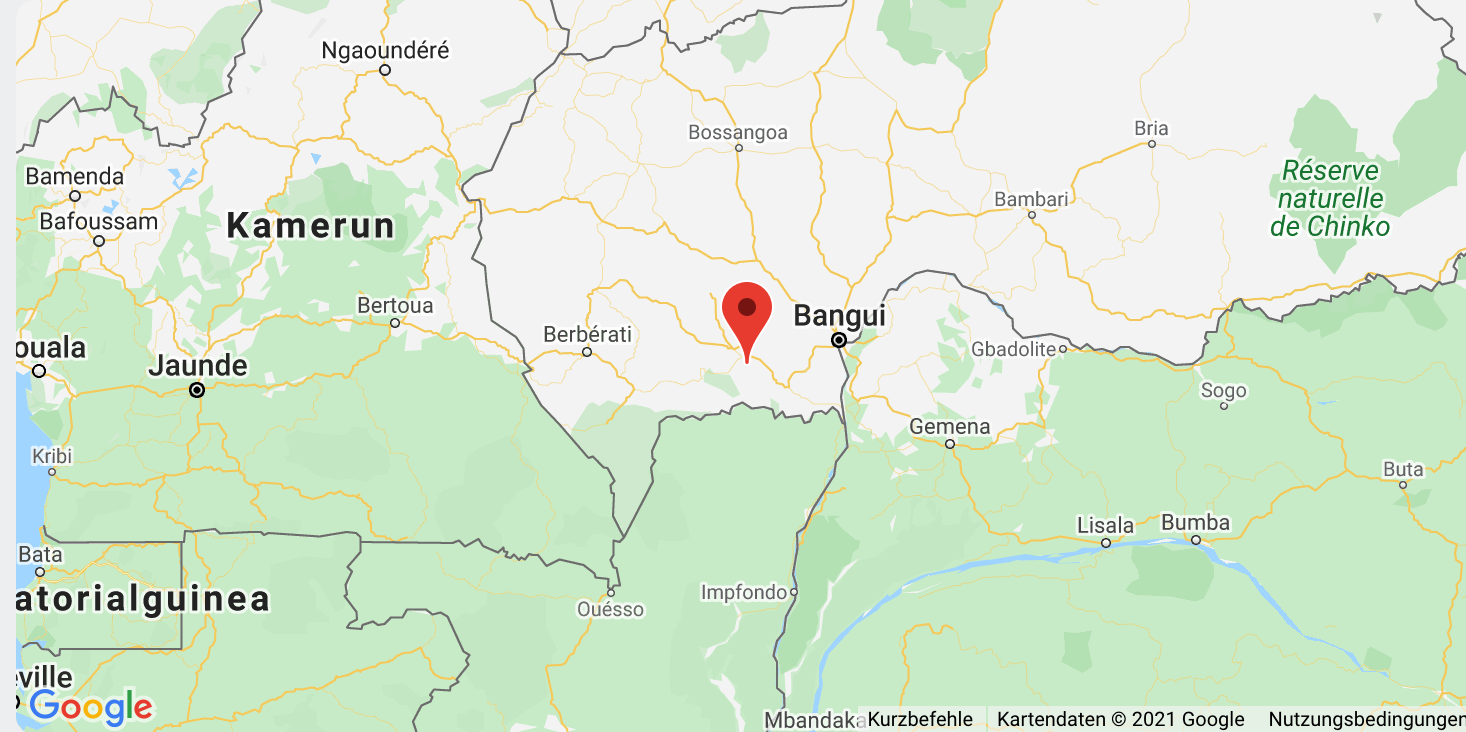Background
Since gaining independence from France in 1960, the Central African Republic has been afflicted by near-constant political instability. The civil war that was triggered by a coup in 2013 led to a drastic deterioration of the already precarious living conditions of the general population – a situation that was only exacerbated by the complete collapse of the health system. The majority of the populace depends on humanitarian aid and more than a quarter are currently displaced or living as refugees. The maternal mortality rate and that of children under the age of five are among the highest in the world.
The Project
In December 2014, in the wake of this humanitarian crisis, FAIRMED started providing emergency aid in the health districts of Bimbo in the Ombella M'poko prefecture and M'baïki in the Lobaye prefecture. The “Emergency Medical Aid in the Central African Republic” project is being carried out in cooperation with the UN Coordination Office for Humanitarian Aid and the district health authorities. The aim of the project is to ensure that the people in the health districts of Bimbo and M'baïki have proper access to medical care. In late 2018, the project area in the M'baïki district was expanded from six districts to nine, taking the total number of included health facilities from 30 to 37. Since the initiation of the project, FAIRMED has provided valuable assistance in efforts to rebuild Lobaye’s decimated health system. However, in 2018 the humanitarian situation deteriorated once again, meaning that the need to continue the project is now greater than ever, in particular in the new districts and health facilities.
Objectives and Activities
The central aim of the project is to construct and maintain a functioning health system in the regions of Bimbo and M'baïki. To this end, the project is pursuing three specific aims that are being realised, among others, through the following activities:
The general population is provided with access to health services
Since the autumn of 2018, FAIRMED has operated a pilot emergency transport and treatment system for people living in inaccessible villages in the Moboma commune. Here, the villages have been provided with bicycles. In the event of an emergency, a villager can use the bicycle to reach the nearest health facility and inform them of the situation. In turn, the health facilities have motorcycles at their disposal and can pick up patients from villages and transport them to a health centre or, if necessary, transfer them to a better or more appropriately equipped health facility. The streets of Moboma are in an extremely poor condition, making these motorcycles the best form of emergency transportation.
The emergency patients are treated at health facilities.
A motorcycle ambulance is operated from the health centre in M'bata. Among other items, FAIRMED pays for fuel and maintenance.
The health facilities are equipped with the appropriate medical materials and medicines
The health facilities are provided with medical materials and the necessary infrastructure for the areas of child-birth, surgery and laboratories.
Healthcare facilities are provided with the necessary medication.
The health facilities are assisted in the recruitment of qualified and adequately paid health staff
FAIRMED provides support in engaging doctors, nurses, midwives and caregivers in paid employment.
Health personnel are trained in a range of topics
Sustainability and Monitoring
All FAIRMED projects are implemented in cooperation with the local official agencies and with the inclusion of the population on the ground. The regional FAIRMED country offices are staffed exclusively by local employees. With this approach, and aided by consistent monitoring, problems can be identified in a timely manner, causes can be analysed, and methods and objectives can be adapted where necessary. The direct integration of health ministers and partner organisations also ensures that projects can be transferred at a later point and continued without the support of FAIRMED.
Beneficiaries
The project benefits the 217,271 inhabitants of the communities within the project area. These municipalities include M’baïki, Pissa, Mbata, Moboma, Mongoumba, Balé Loko, Bimbo, Lesse, Nola and Bogongo-Gaza.
No one should suffer or die from a curable disease
Minyem Jacques Christian • Country Coordinator Central African Republic
Support FAIRMED